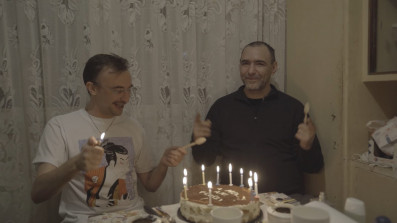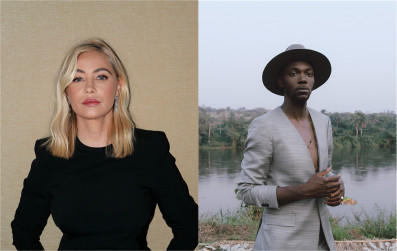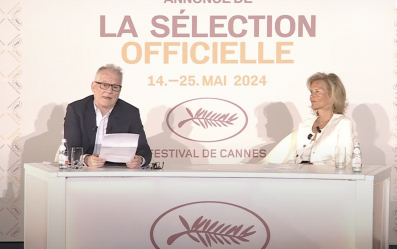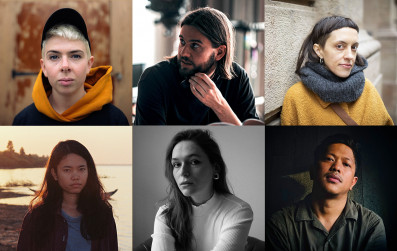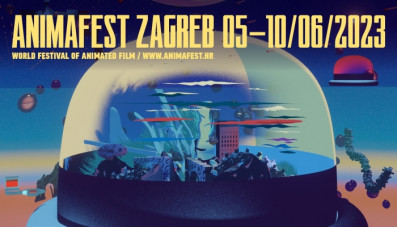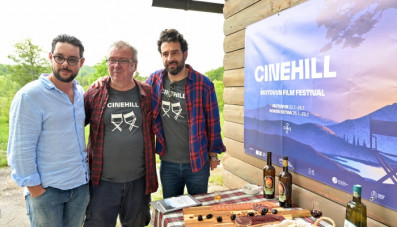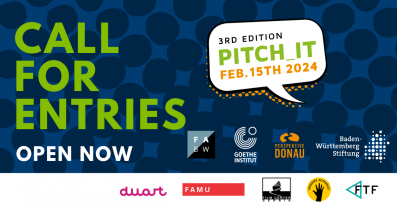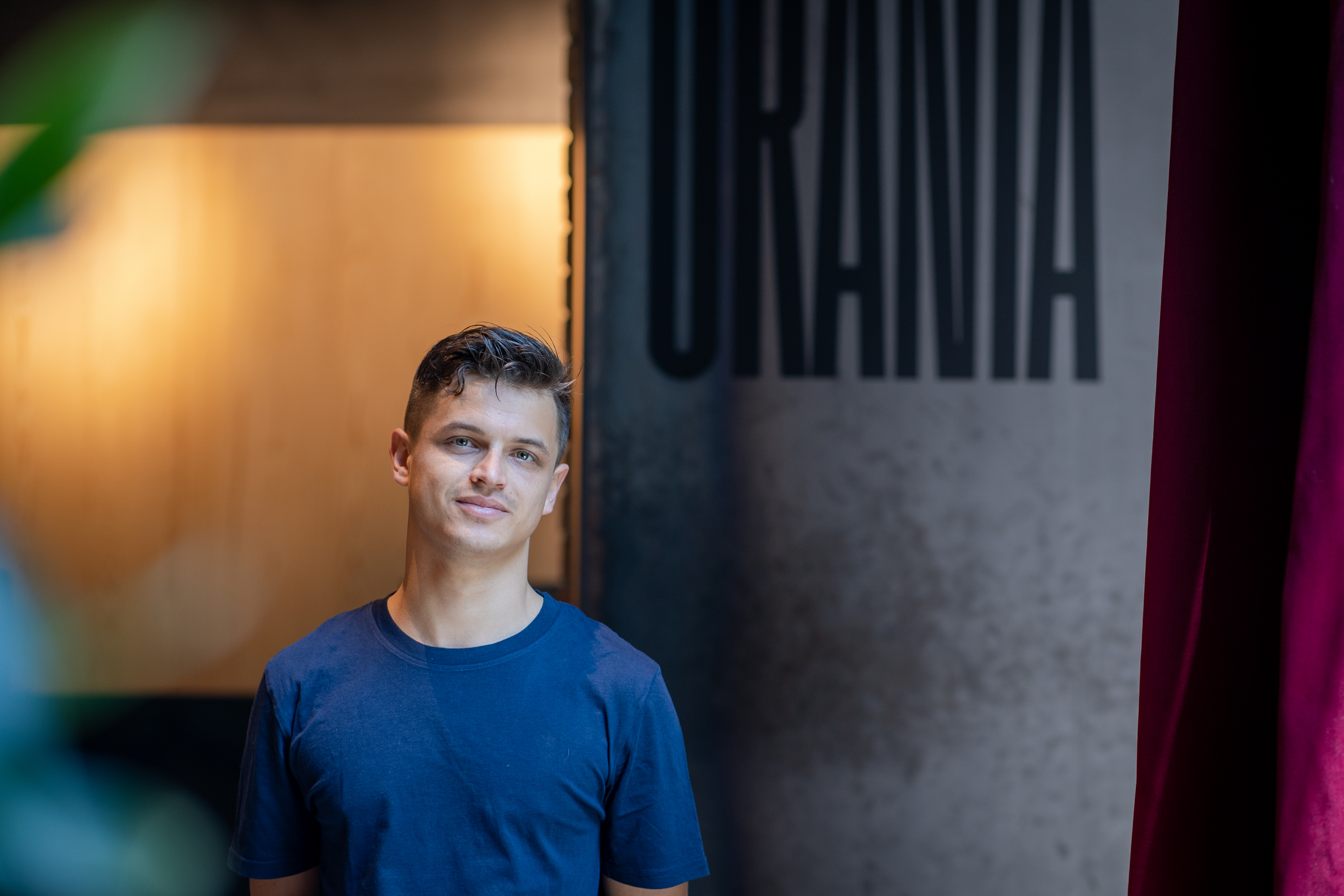
"Festivals of this kind are important in destigmatizing sexuality", Matej Beluhan
We talked with Matej Beluhan, the Director of the Cherry Pop Film Festival
This is the first year that the Cherry Pop Film Festival is taking place, however, this is not the first time you are organizing a festival? How has Cherry Pop been able to distinguish itself amongst the multitude of festivals in the world? How many submissions have you received, from which countries, and what did you see as the Festival's strengths?
We are a team that has (in a slightly changed lineup) organized five editions of the Student Film Festival, a Festival that brought to the Zagreb audience the best of regional student filmmaking, but as we matured out of our student days, we wanted to organize a different festival, one that would present to the local, but also the world audience something fresh, original and socially relevant.
There are festivals that aim to explore sexuality, however, a large portion of them is focused specifically on gender equality and inclusion of sexual minorities, another portion of such festivals is focused on sexual fetishes and eroticism, yet others among them simply celebrate love (whether it be motherly, between friends or romantic). We, on the other hand, aim to encompass the entire spectrum of human sexuality. The Cherry Pop Film Festival was conceived as a manifest of generations for whom inclusiveness, equality, and acceptance of all forms of sexuality are a reality.
Therefore, our program features such short films as focus on first proclamations of love between adolescents or ruminations on body issues, as well as films on experiences with one-night stands, films on society's pressure on singles to couple up, and on the inner worlds of people of various sexual orientations, in brief, the entire spectrum of sexuality finally in one place - The Cherry Pop Film Festival!
This unique program was created from a large volume of submissions from six continents, with most submissions coming from the US, while among the selected films, France is most represented. At the start of the submission period, we were unsure what to expect, but we are very pleased with the selected crop of films, as were the jury of the International Program, Lana Barić, Sona Tarokić and Boris Bakal, as well as the Student Program jury, Daily Dozet, Dina Pokrajac and Tajana Bakota.
The theme of the Festival is sexuality. How limited is society's concept of sexuality still and how significant is it that the Festival coincides with the Gay Pride Parade in Zagreb?
Croatian society is still quite conservative with regards to sexuality, which sadly leads to negative reactions and attempts to put into strictly defined categories something that is very fluid. Encountering something unfamiliar can give rise to fear and it is fear that is the source of hatred towards those that are different.
We are very pleased that the final day of Cherry Pop coincides with the Gay Pride Parade and that our Festival follows Queer MoMents and the Vox Feminae Festival in the Zagreb cultural calendar and in a way completes a story of hope, longing, queerness, and inclusion. Rainbow colors will flow this weekend from the streets to the screen at the space of creation Urania on Eugen Kvaternik Square.
Overlaps and cooperation between festivals of this kind are important in destigmatizing sexuality and I believe that together we can show that changes have already happened and that generations have come who are ready to set conformism aside and accept life in all its variety.
The Festival is supported by the Croatian Audiovisual Center and Michelangelo Labs - Fine Art Sculptor. Is it even possible to organize a festival, or any other kind of cultural or artistic project, in Croatia without the support of government institutions?
Sadly, projects in the arts in Croatia depend to a great degree on government support and it is not easy to create something new and develop enough of a profile to attract sponsorships, especially in these post-pandemic times, following two earthquakes and amidst rising inflation and war in Ukraine. In other countries, the arts have a different status and are supported more generously, but we don't want to complain, rather we recognize the nature of the situation and are intent on working hard to secure alternative, commercial means of funding the Festival, so that we are not dependent (exclusively) on public funds.
Does government funding limit the choices you can make, what you can say in the media, and what critiques you can make? Are you satisfied with the state of the Croatian film industry?
There is that unspoken problem in our domestic film community in which, more or less, everybody knows everybody. Were we to criticize the Zagreb government or the Croatian Audiovisual Center's artistic advisors, should we worry about our grant applications being rejected? All of these institutions are run by people and people are prone to be protective of their own beliefs and actions, so it is entirely legitimate to wonder - how do you criticize institutions on which's funding your project depends? Part of the answer is certainly in a constructive approach to criticism, however, the solution to this problem mostly rests on changing the status of the arts in society. The arts should not be surviving on life support, because this stifles one crucial aspect of creative expression - social criticism.
Our film industry is full of talent and good people who take a serious approach to their work. Croatian film, on the other hand, is in a perpetual search for identity. It is true that in the past decade Croatian film has found greater success at festivals and that connections with foreign film industries have expanded, but it is as if this has come at the cost of variety, as Croatian film today seems to repeat old stylistic and thematic preoccupations while failing to achieve any kind of social impact.
You were, however, also sponsored by companies. How did they regard the Festival and was the theme of sexuality something that intrigued them or something they were wary of?
We've established connections with some young and ambitious people with whom we share values and with whom it is easier to look to the future and by that, I do not mean only the future of the Festival, but of all of us. I think that our sponsors have recognized, as we did at the Festival, the importance of creating a space for dialogue on sexuality and relationships. We are especially pleased to have established a connection with Duart, which is essentially a matchmaking platform for film professionals.
I hope that the people of Duart and other sponsors will join us at the screenings, however I have to note that front row seats have already been reserved by LELO; the world's leading provider of intimate lifestyle products.
The Festival is a platform for an important segment of the film industry, film students. Are they interested in making art films or are they increasingly turning towards the mainstream, the commercial, and social media?
We have been following regional student filmmaking for years now and we are very pleased that the Student Program of the first Cherry Pop Film Festival is equal in quality to the International Program. Films that come out of film schools are, of course, often art films, or put a different way, they are films that follow a blueprint that has for some time now proven successful at film festivals. While it is good that young filmmakers aim for festival success, this leads to a limiting of creative expression to "that which does well at festivals" and it is my impression that the filmgoing public is getting a little tired of such films...
I should mention that we realized only at the closing of our submission window that we should have set the thematic criterion of sexuality for the Student Program as well. Having not done that, the Student Program features a few films that, while of high quality, do not deal with the overall theme of the Festival, however it turned out that the dominant theme in the work of student filmmakers generally was, nevertheless, love.
This year, you've also taken the Festival online, which creates new opportunities and opens bigger markets. Do you think Duart could similarly be a turning point that opens up international markets for Croatian filmmakers, as well as jobs in the Croatian film industry to foreign film professionals?
We are the generations that witnessed the development of the "global village," generations younger than us were born in it and we can't imagine how they see the world they live in. We shouldn't run from digitalization, but we shouldn't get lost in it, either. We all understand the importance of joining the "real" world with the "virtual" one and our main sponsor Michelangelo Labs - Fine Art Sculptors bridges the gap between digital art - NFTs - and the physical, tangible world.
One of the foremost advantages of digitalization is certainly that it connects people and one of the biggest problems is the lack of credibility and trust in the platforms we use to achieve those connections. Networking in the film industry is not easy, one has to deal with shyness and social anxiety, but equally, it is important to learn to present one's self to other people and, importantly, to the right people - Duart addresses all of these problems.
The Croatian film industry has in recent years established connections with the world, which is evident in the increasing numbers of films co-produced with foreign partners and foreign productions shooting in Croatia, and Duart has already become an important link in connecting film professionals from Croatia with colleagues from other countries.
You've also designed a creative marketing campaign for the Festival, can you tell us about that?
Advertising a program of this nature offers some particular opportunities, but also has its own difficulties. While we have the option of being a bit provocative in our marketing content, we also have to take care not to be identified by social media algorithms as purveyors of sexually offensive content. Sadly, the hypersexualization of online content and content, in general, has led to such a climate where major online platforms may limit the reach of marketing content aiming to promote healthy sexual values.
But, again, one should not depend on the digital world alone, so in the weeks leading up to the Festival we distributed among the young people of Zagreb stickers with captions like "Wanna watch movies about sex?" and a QR code linking to our web site and asked them to distribute them further among their peers and gathering places of young people. We hope that with our combined efforts we managed to spread the word about the first edition of The Cherry Pop Film Festival.
How would you summarize in brief the process of organizing the Festival and all the work, the meetings, negotiations, and the people that are involved in it? What can we expect from the Festival?
To describe the process briefly - when you are motivated and you believe in what you are doing, nothing can get in your way, especially when you have with you the right people.
What can you expect to see in the Cherry Pop program? The International Program features 22 short films from 16 countries that explore sexuality and gender identity, as well as their interrelation with social norms, the digital world, and violence. The Student Program, consisting of 20 short films, affords an opportunity for the youngest filmmakers of the region to present their latest and best short films.
The Cherry Picking program explores sexuality in Japan through the films of Kenji Mizoguchi and The Pleasure of Rope, a documentary film on kinbaku, a Japanese style of bondage regarded as a precursor to BDSM culture, directed by BAFTA winner Bob Bentley who will be the honored guest of our Festival. The Festival will also feature two lectures which will be given at the cultural center MaMa in Zagreb. One on the work of Mizoguchi (by Tanja Vrvilo), the other on the evolution of gender roles in Hollywood (by Krešimir Košutić). In addition to this, a masterclass on networking in the film industry aimed at current and future film professionals will be given by Sanja Drakulić from Duart platform at the space of creation Urania.
The online edition of the Festival features the two main competition programs (The International and the Student Program) and can be found at www.vimeo.com/ondemand/cherrypopfilmfestival. It can be accessed worldwide by purchasing a Festival pass.



